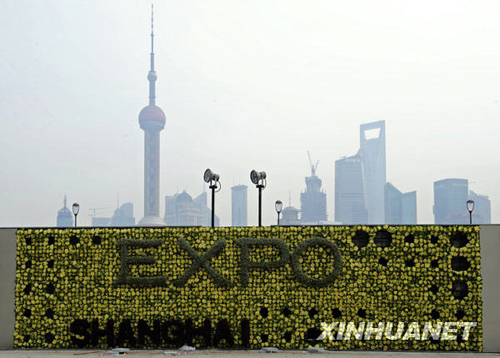Pollution will be controlled during Expo
Enterprises within 300 km of Shanghai in the Yangtze River Delta will be subject to production control during the six-month World Expo if the city's air quality falls below standards, local environmental protection authorities said yesterday.
 |
"We'll monitor air quality each day and if it shows negative trends, we'll take emergency measures, including production control or even shutting down certain heavy-polluting companies," Zhang Quan, director of the municipal environmental protection bureau, told China Daily yesterday on the sidelines of the annual municipal people's congress.
Iron, steel, chemical and construction industries will be subject to the rule. The policy has gained support from officials in nearby provinces including Jiangsu and Zhejiang, he said.
The two provinces and the municipality already have been collaborating on sharing air pollution data as a way to combat regional air pollutants.
City governments have drafted emergency plans regarding vehicle control during the Expo, Zhang said. The plans did not rule out resorting to the odd-and-even license plate rule, which allows cars onto the roads on alternate days. Another plan being considered is a ban that stops motorists from driving one day each week based on their license plate number. Car owners in Beijing now have to abide by the second rule, even after the Olympics.
"Although vehicle control measures are primarily intended to ease traffic congestion, it's also a good way to improve air quality, as it would reduce pollutant emissions to a large extent," he said, adding that people are being encouraged to take buses and subways to visit the Expo.
In Shanghai, the air quality has been improving steadily. Last year more than 90 percent of the days were recorded as having "fair" or "good" air quality, the first time it had surpassed 90 percent.
The city aims to have more than 95 percent of the days reaching "fair" air quality this year in its attempt to hold a green World Expo.
Since 2000, the city government has rolled out an environmental campaign by investing approximately 3 percent of its GDP growth into citywide environmental initiatives.
Still, some areas need improvement, especially the suburban and rural areas, Zhang said.
For example, agricultural pollution from the overuse of pesticides and fertilizers is posing an increasingly serious threat, experts say.
Jin Yan, a deputy to the municipal congress from the city's Xuhui district, called on the government to distribute free non-toxic pesticides and fertilizers to farmers to reduce agricultural pollution.
 0
0 






